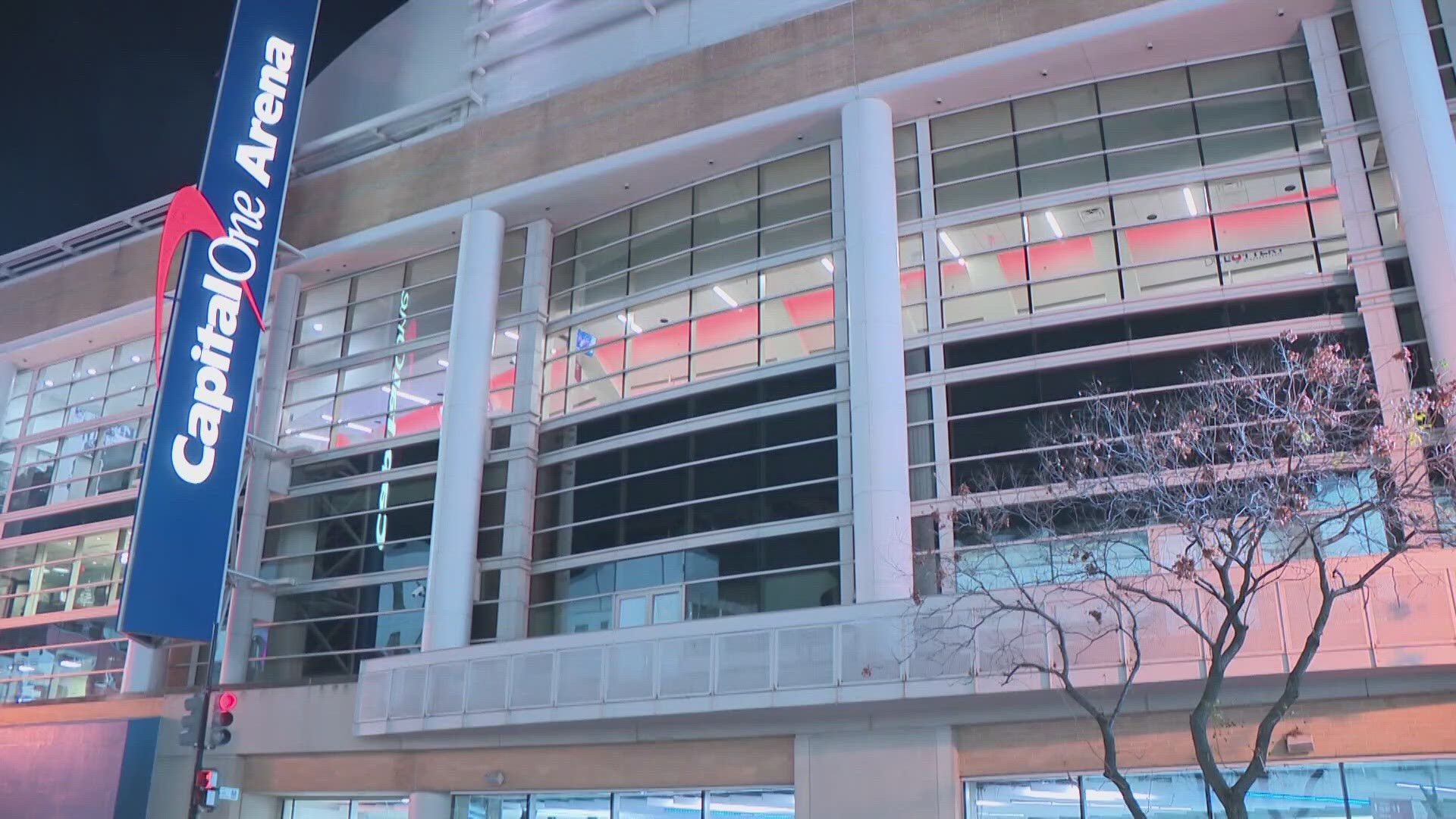WASHINGTON — As expected, the DC Council unanimously passed the Monumental deal Tuesday evening. Prior to the vote, many council members voiced concerns about the terms of the deal they saw for the first time 24 hours before the scheduled vote. Councilmember At-Large Robert White said, “The Mayor dropped the ball. The only reason we have the teams back is because Virginia fumbled.”
“This vote is not a rubberstamp,” CM At-Large Kenyan McDuffie added. “We have questions about the public’s return on investment.”
“Frankly, I don’t think D.C. residents get enough out of this deal right now,” said Ward 8 Councilmember Trayon White who expressed concern about Monumental’s further investment in the Sports and Entertainment Arena in SE.
Earlier in the day, councilmembers had the opportunity to question Deputy Mayor of Planning and Economic Development Nina Albert who attended the council’s working breakfast meeting. At breakfast, they learned this deal will cost more than the advertised $515 Million over three years. There is a provision in the tentative agreement that gives Monumental an option to renew after 2050 with more taxpayer money to renovate the facility. The idea here is that the Arena will reach its 20-year lifespan by that time.
“We are at a 20-year point at this moment of this arena, and it needs a new infusion of investment to be viable for another 20, 25 years, explained Deputy Mayor Albert.
The project will be paid through the Capital budget with obligation bonds that are typically paid back through resident taxes over 20-30 years. According to the Mayor’s office, the District’s AAA bond rating allows the city to borrow without having to raise property taxes to pay back the loan.
Ren Lee represents the group "Save Chinatown DC" and the less than 300 people she says are left living in Chinatown. Lee spoke to reporters prior to the Council vote on the Monumental deal to express her opposition to the plan. She says residents have been left out of the conversations and fear displacement and dismantling of their community.
“I see this as class warfare,” said Ren Lee. “We pour hundreds of millions of dollars, billions actually, into downtown progress but what it means is it's only downtown progress for wealthy people and we no longer have these enclaves of culture and working class that built the city up.”
But Albert says the Chinatown residents and businesses are top of mind in the entertainment district that the city hopes to create. In fact, as part of the preliminary deal, Monumental asked for the creation of an entrainment district to include a ban on vending and loitering.
“The District is interested in creating an entertainment district as well, but there are residents that live there, there are businesses of a whole variety,” explained Albert. “We have interest in hosting festivals there. So, the question about how you use public space and how you manage it comes into question.”
The deal also includes an additional 200,000 square feet of space by expanding into the nearby Gallery Place building. Construction will take three years and is expected to begin in 2025. However, Albert said the Arena will have to close during the construction phase which she anticipates will occur during the off-season. She was not sure of the impact construction would have on the gallery place/Chinatown area.
“If in these closed-doors conversations are the only way D.C. can fund our streets, or bring community, or bring any development,” said Lee, “if the only way to do that is to fund millionaires it’s outlandish.”
A spokesperson for Monumental said the terms of the deal are likely to change several times during negotiations over the next couple of months.
The council voted on an emergency measure that earmarks the money and allows the city to negotiate with Monument. However, no money can be spent until the council votes on the Mayor’s FY25 budget. Bowser will present her budget on Wednesday. The council then has 70 days to vote.
Last week we told you that the Caps and Wizards were staying in the District after some Virginia lawmakers squashed plans to move the teams there. Mayor Muriel Bowser told WUSA9 that the arena and this $515 million deal with Monumental is an investment in the District's future.
She also noted in a one-on-one conversation with WUSA9's Delia Goncalves on Monday that this investment comes from the capital budget versus the operational budget, which is what funds city services like schools.
Bowser said this new deal means more revenue, more jobs, and her ability to follow through on plans to revitalize downtown.
In conversations with Ted Leonsis – he told her passing the "Secure DC" crime bill and establishing the Chinatown task force helped cement the deal in the end.
Again – the mayor says it's all a win for D.C.
"In the long term, we can redevelop Downtown Washington into our perfect vision, but right now is kind of a tender time as we are trying to replace workers," Bowser said. "We don't also want to have to replace nighttime traffic. Even in tight budgets, and this will be a tight one, I will always prioritize investments that kick in more revenue to the District so those types that allow us to have more visitors, more housing – creates more jobs.
Mayor Bowser is also expected to present her yearly fiscal budget on Wednesday, and she says this arena deal will of course be part of it.

